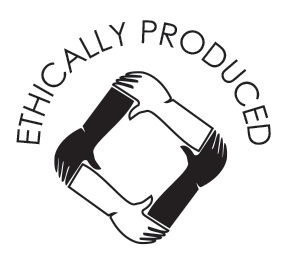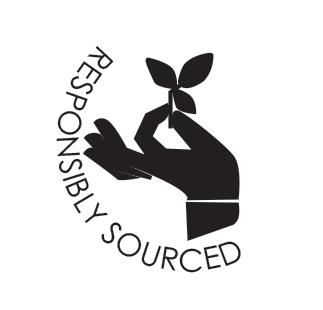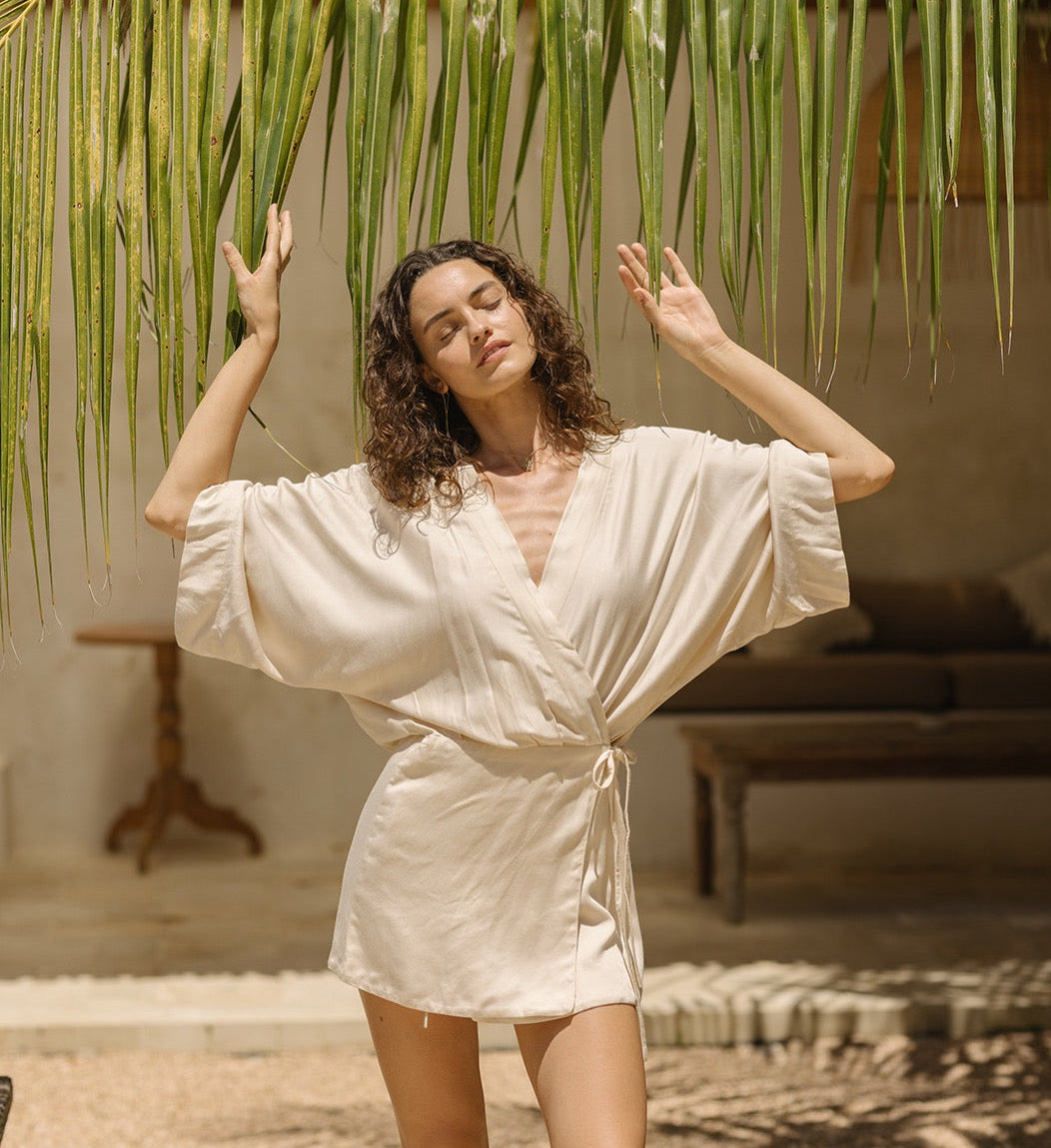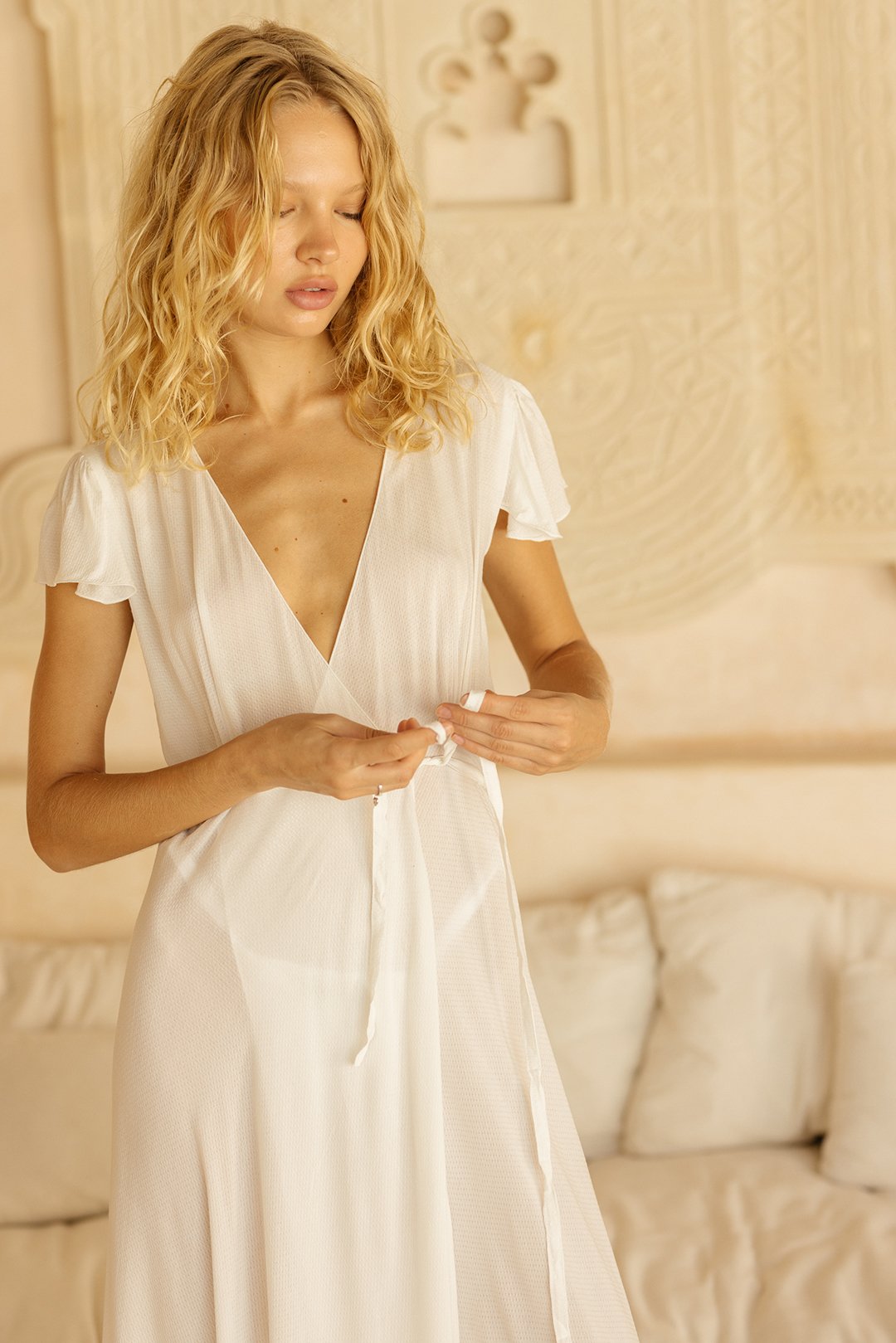Maria Malo, Ethical and Sustainable
Our Fabrics
We work exclusively with organic and regenerated materials because they are kind to the planet and to the people who wear them.
Organic fibers are cultivated without harmful chemicals, preserving soil health, protecting ecosystems, and using significantly less water.
Regenerated materials, such as recycled fibers, extend the life of existing resources, keeping waste out of landfills and closing the loop in fashion
TENCEL™ Lyocell
TENCEL™ Lyocell fibers are made from sustainably sourced wood, offering a soft, breathable, and durable alternative to conventional fabrics. Naturally strong yet gentle on the skin, it absorbs moisture efficiently and helps regulate body temperature, providing lasting comfort throughout the day.What makes TENCEL™ Lyocell truly unique is its closed-loop production system. In this innovative process, wood pulp is turned into fibers while more than 99% of the solvent is recovered and reused. This ensures minimal environmental impact and almost no waste — a breakthrough in responsible fabric manufacturing.
Tencel™ Lyocell voile
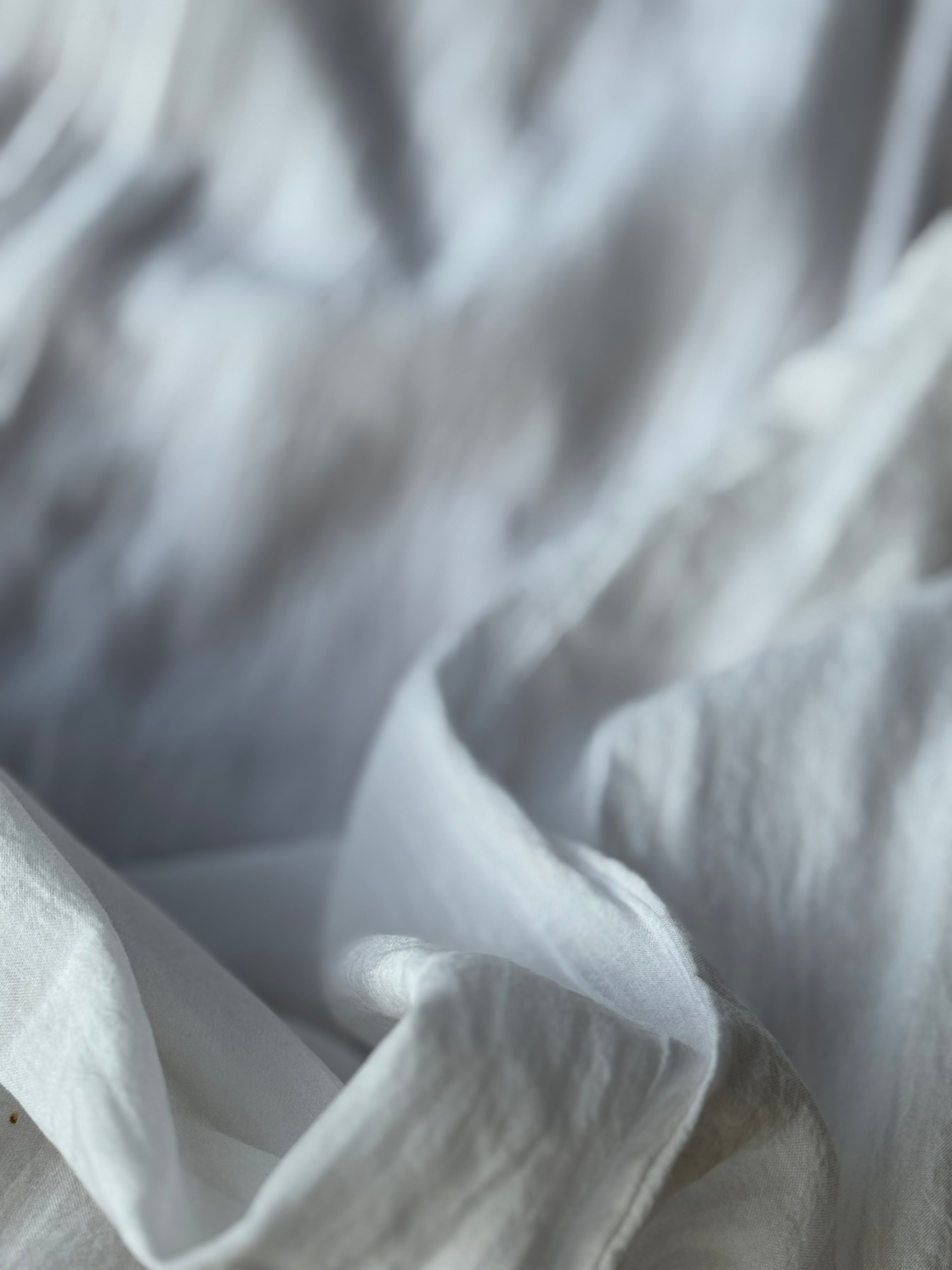
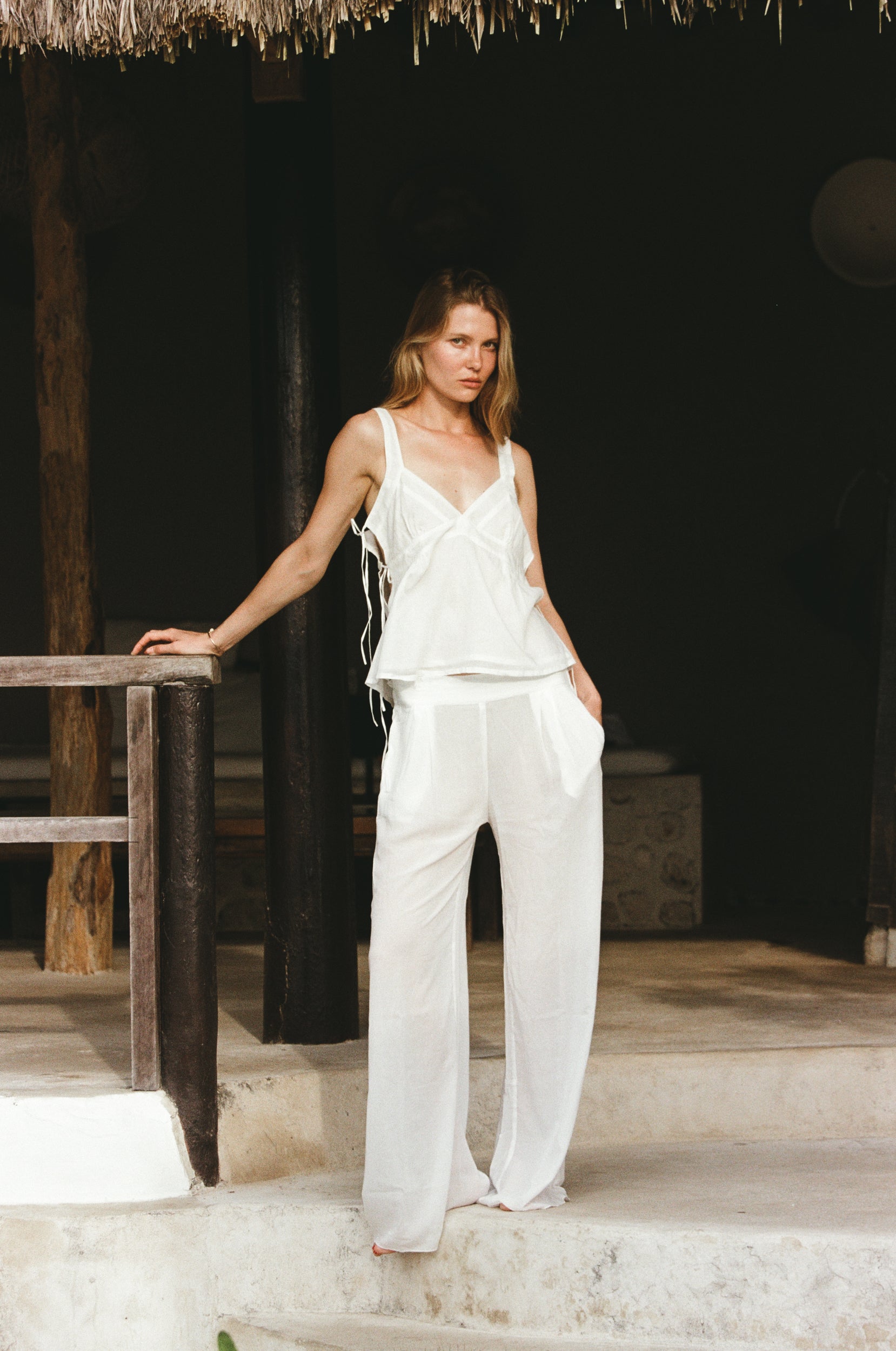
100% TENCEL™ Lyocell (cellulose from wood pulp)
We choose TENCEL™ voile for many of our dresses and pants because of its beautiful drape, its incredibly soft touch, and its refined lightweight feel. The fabric flows effortlessly, offering comfort and elegance in equal measure, making it ideal for pieces that move with you. Beyond its luxurious texture, TENCEL™ voile is also responsibly produced, combining style with sustainability.
TENCEL™ EcoLinen
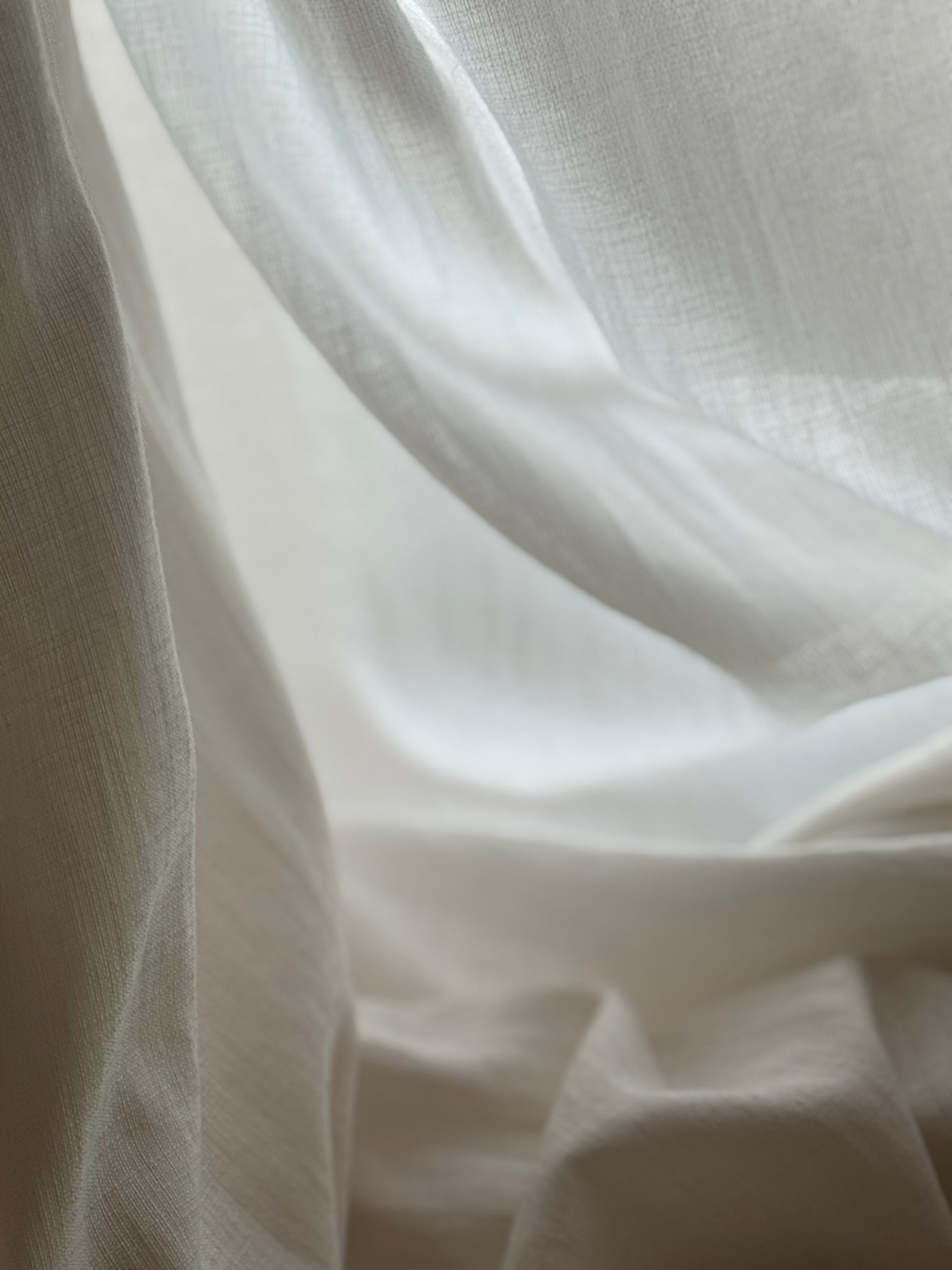
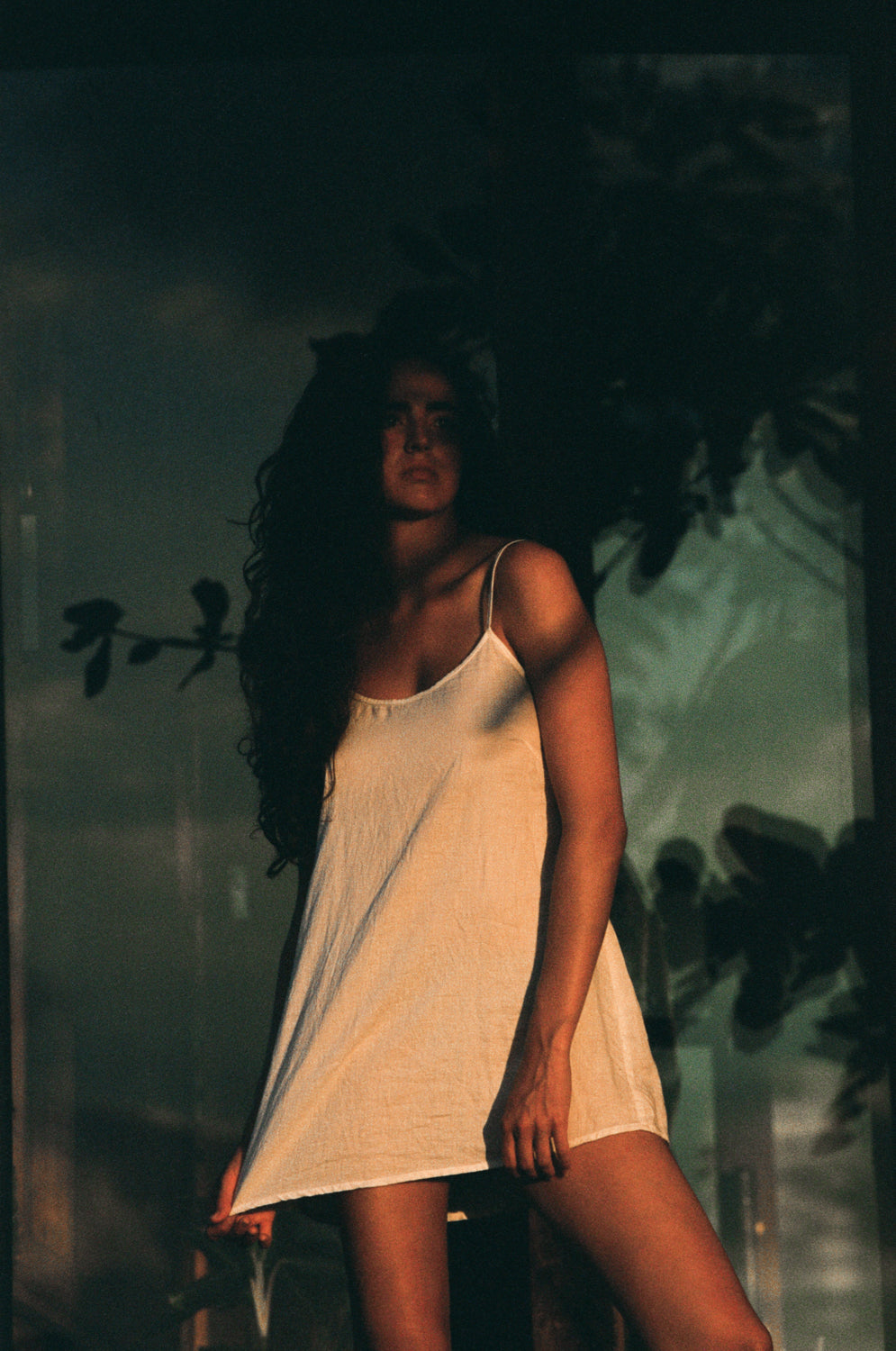
TENCEL™ EcoLinen is a blend of TENCEL™ Lyocell fibers and linen, created to bring together the best of both worlds. The linen provides its signature airy texture and natural strength, while TENCEL™ adds silky softness, fluid drape, and excellent moisture management.
The result is a fabric that looks effortlessly elegant, feels gentle against the skin, and stays breathable even in warm climates. Beyond comfort, EcoLinen is also a responsible choice: the linen is derived from flax, one of the most resource-efficient crops, and the TENCEL™ fibers come from FSC® and PEFC™ certified wood sources, produced in a closed-loop process with minimal impact.
EcoLinen offers the timeless beauty of linen, refined with modern sustainability and comfort.
COMP: 70% TENCEL™ Lyocell and 30% linen
Cupro Lyocell
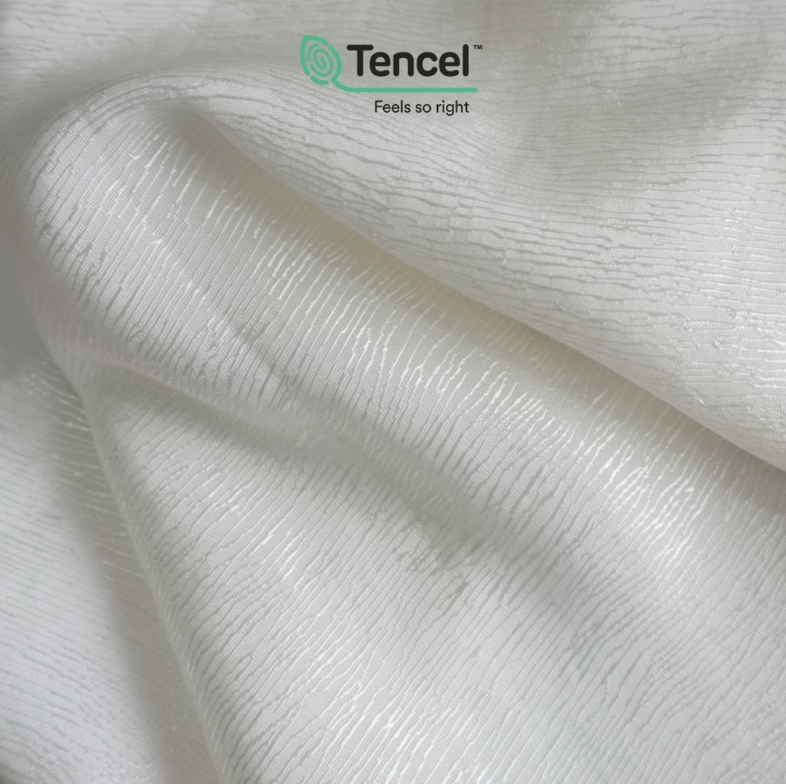
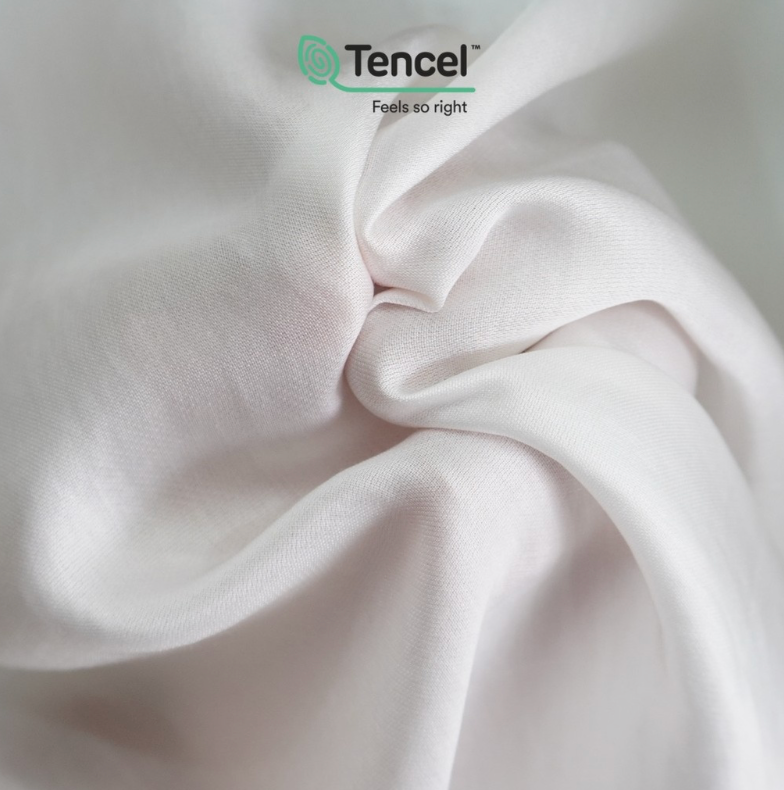
1. Cupro Lyocell Jacquard: This exquisite fabric combines 58% Cupro and 42% TENCEL™ Lyocell, woven into a delicate jacquard structure. Cupro, a regenerated fiber made from cotton linter, gives the fabric a silky touch, elegant sheen, and beautiful drape, while Lyocell adds strength, softness, and moisture-regulating properties.
The jacquard weave elevates the blend with subtle texture and depth, resulting in a fabric that feels luxurious against the skin and moves fluidly with the body. Both fibers are plant-based, biodegradable, and produced through environmentally responsible processes, making this fabric as sustainable as it is refined.
2.Cupro Lyocell: This luxurious fabric is crafted from a blend of 56% TENCEL™ Lyocell and 44% Cupro, bringing together two responsibly produced fibers with exceptional qualities. TENCEL™ Lyocell adds breathability, durability, and silky softness, while Cupro enhances the fabric with a smooth, silk-like finish and elegant drape.
The result is a lightweight, fluid material that feels gentle against the skin, absorbs moisture efficiently, and flows beautifully in movement. Both fibers are biodegradable and produced through innovative, environmentally responsible processes, making Cupro Lyocell a fabric that embodies both luxury and sustainability.
TENCEL™ Modal

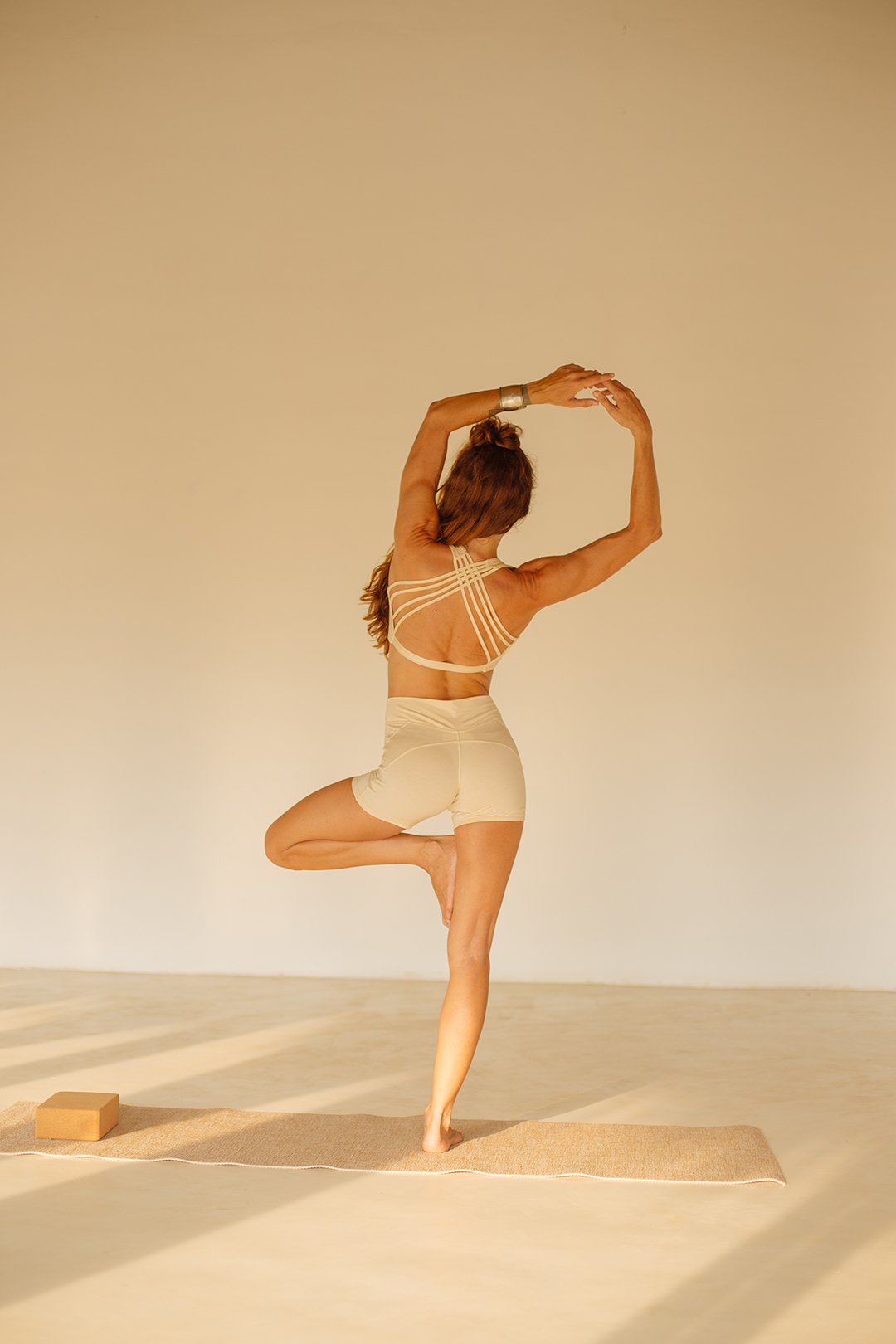
Our designs are crafted from 100% TENCEL™ Modal, a fabric celebrated for its exceptional softness, smooth texture, and fluid drape. Naturally breathable and gentle on the skin, it offers lasting comfort and elegance, making it ideal forunderwear, activewear, dresses, and tops. Even after repeated washing, it maintains its luxurious touch and refined look.
Sustainability
The production of TENCEL™ Modal is carried out using resource-efficient technology with a high rate of chemical recovery, reducing environmental impact compared to conventional fiber manufacturing. Like all TENCEL™ fibers, Modal is biodegradable and compostable, supporting a more circular and responsible textile industry.
TENCEL™ Jersey
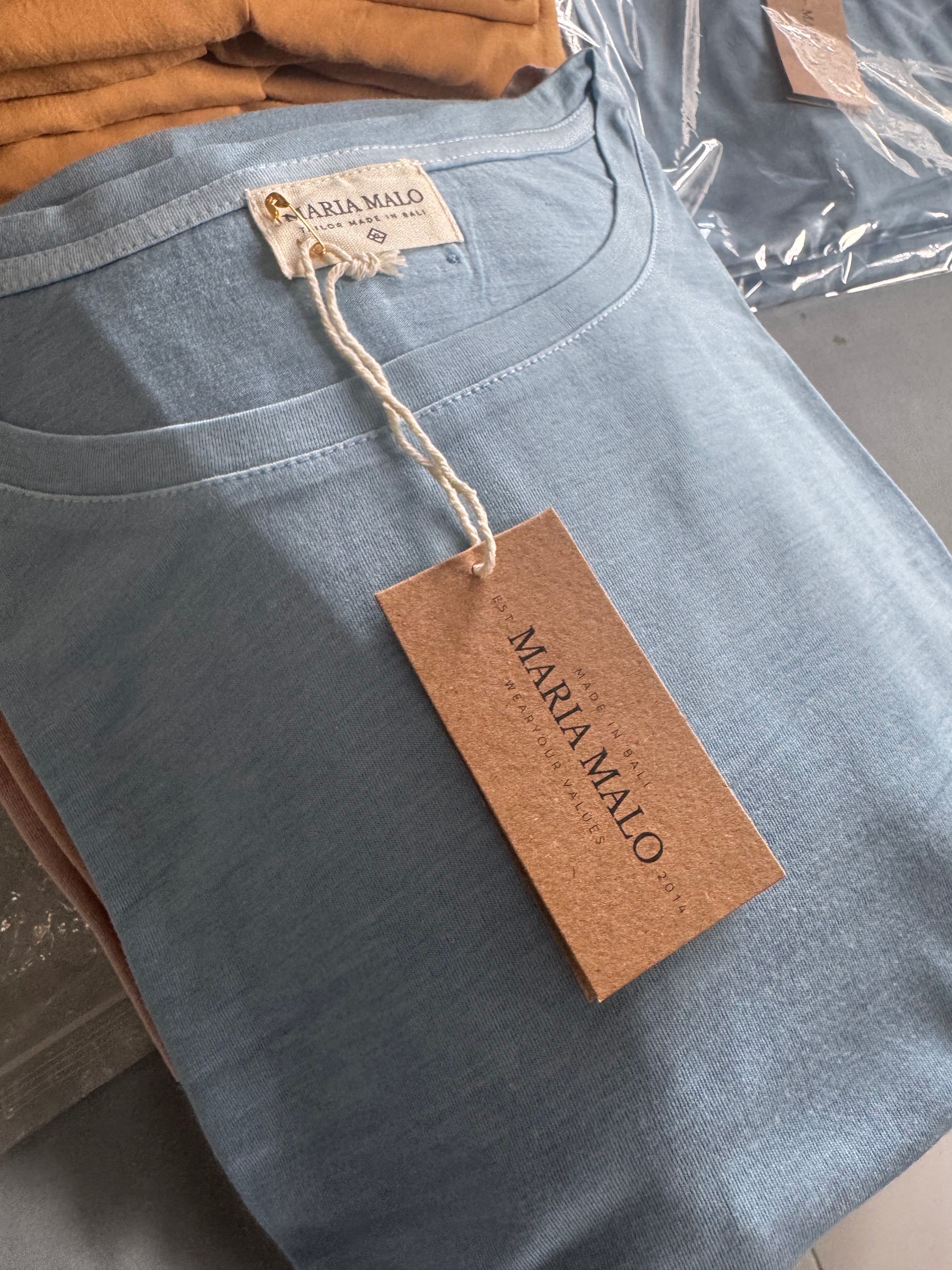
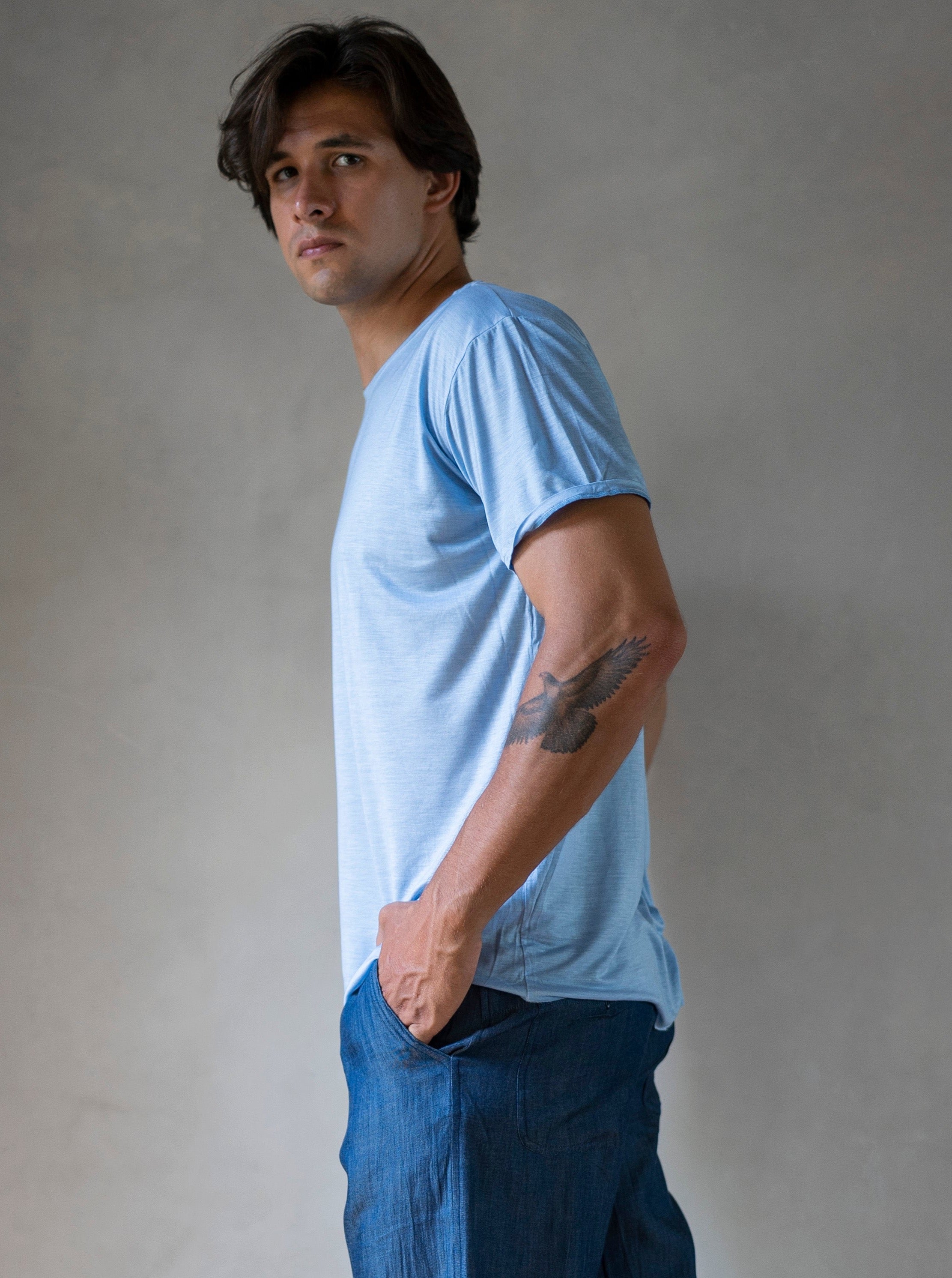
Our 100% TENCEL™ Jersey is a fine, lightweight knit designed for ultimate comfort and everyday wear. Soft, breathable, and naturally smooth against the skin, it offers excellent drape and moisture management, making it the perfect choice for t-shirts and essentials.
Crafted entirely from TENCEL™ Lyocell fibers, this jersey combines a refined look with sustainable performance, ensuring durability and comfort while reducing environmental impact.
LENZING™ ECOVERO™
95% LENZING™ ECOVERO™ | 5% Spandex
Our fabrics are crafted from 95% LENZING™ ECOVERO™ viscose and 5% spandex, blending sustainability with comfort, performance, and durability. LENZING™ ECOVERO™ is a responsibly produced viscose fiber made from FSC® or PEFC™ certified wood sources, using a closed-loop process that recovers and reuses water and chemicals. This process uses up to 50% less water and energy and generates significantly lower carbon emissions compared to conventional viscose, while ensuring full supply chain transparency.
The addition of 5% spandex enhances stretch, shape retention, and wearability, ensuring our garments remain comfortable and beautifully fitted over time. While spandex is synthetic and not biodegradable, its small proportion allows us to deliver the quality and performance our designs require without undermining the core environmental benefits of LENZING™ ECOVERO™.
This carefully balanced blend results in fabrics that are soft, breathable, fluid in drape, and long-lasting, combining thoughtful design with a commitment to reducing environmental impact.
Bamboo
Bamboo can grow up to 35 inches in a single day—that’s almost 1.5 inches per hour. You could literally watch it grow. Not only that, it’s naturally pest-resistant and doesn’t need replanting after harvesting. Less work, less water, more sustainability.
IT produces 35% more oxygen than an equivalent stand of trees. It’s like nature’s carbon-sucking vacuum cleaner.
Bamboo grows up to 3 feet in a single day—that’s faster than any other plant on Earth. And it doesn’t need replanting after harvesting. Cut it down, and it just pops back up like nothing happened. Compare that to cotton, which needs replanting, heavy irrigation, and tons of pesticides. It thrives mostly on rainwater. No irrigation, no fuss.
bamboo bintik
Certifications STANDARD 100 by OEKO-TEX®
organic cotton
We use Organic Cotton that is certified by the Global Organic Textile Standard (GOTS), the world’s leading standard for organic textiles. GOTS certification ensures that the cotton is grown without synthetic pesticides, fertilizers, or genetically modified seeds, and that strict environmental and social criteria are met throughout the supply chain.
Soft, breathable, and durable, organic cotton provides everyday comfort while supporting a more responsible and sustainable textile industry.
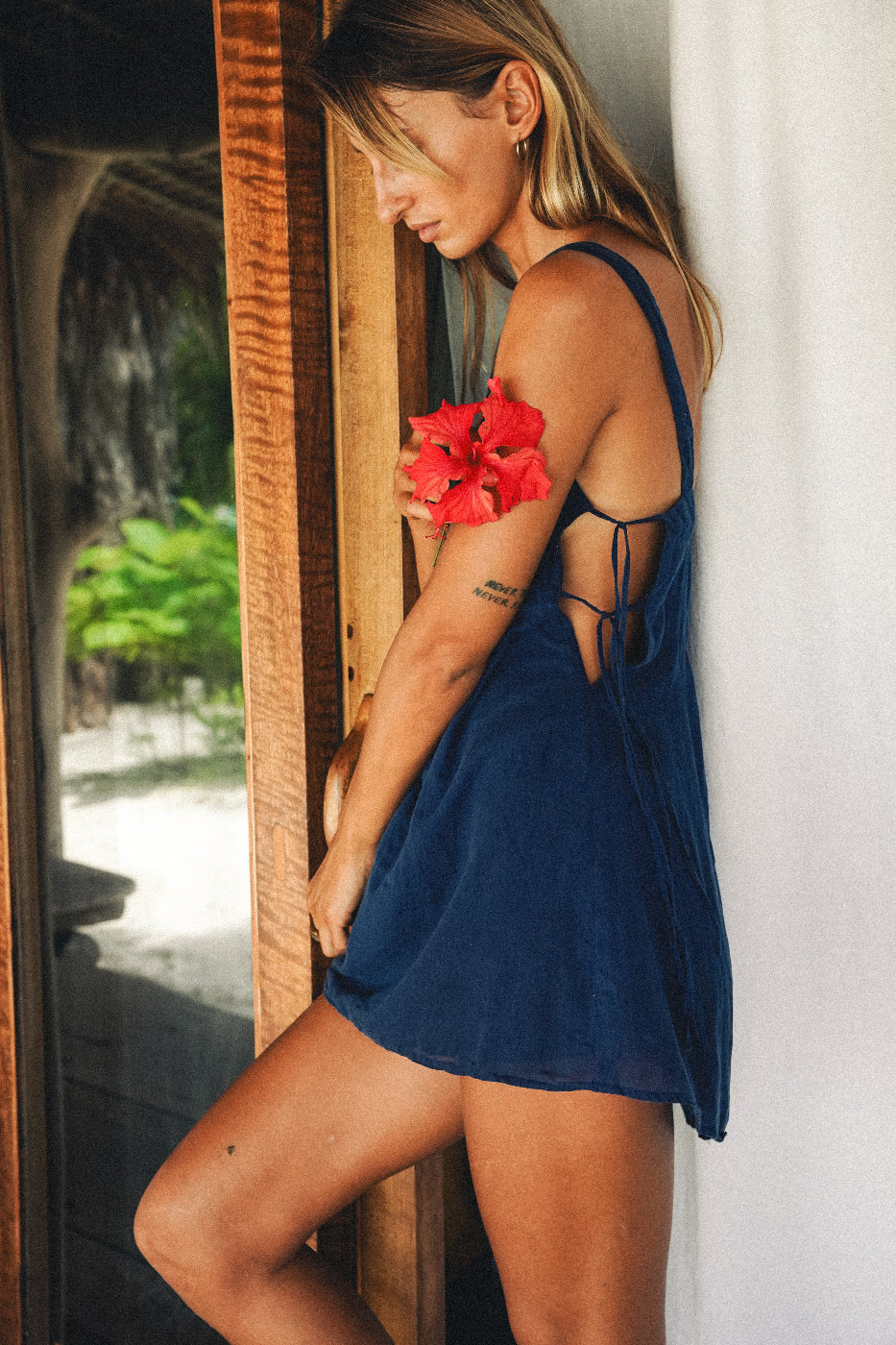
Organic cotton voile
A lightweight, semi-sheer fabric known for its soft touch, airy feel, and elegant drape. Its fine weave makes it ideal for blouses, dresses, and delicate layering pieces, offering both comfort and sophistication.

Org Cott SARI CRINKLE
A light and airy fabric with a naturally crinkled texture, it offers a refined yet relaxed look and moves beautifully with the body. Gentle on the skin and highly breathable.
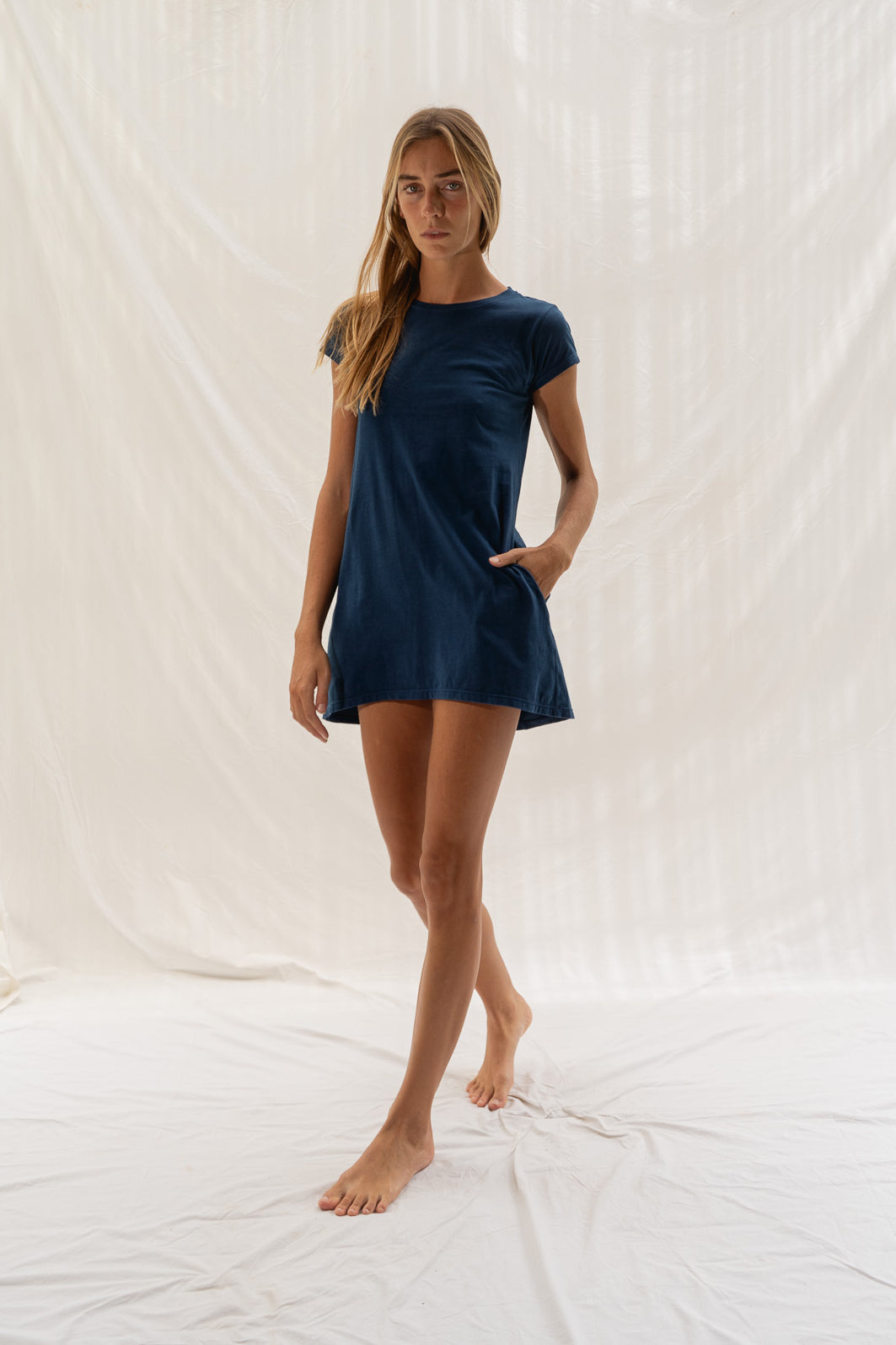
ORGANIC COTTon ...'S
Crafted from 100% organically grown cotton, free from pesticides and harmful chemicals, it is gentle on the skin while supporting environmentally responsible farming practices.
Econyl®:Re-Nylon
From waste material
Why?
Our goal is to create a business that is restorative and regenerative by design, striving to incorporate as many circular materials as possible into our collections.
ECONYL® takes recycled materials to a whole new level by turning waste into resource. To make ECONYL®, waste such as industrial plastic, waste fabric and fishing nets from oceans is recycled and regenerated into a new nylon yarn that is exactly the same quality as virgin nylon.
Turning waste problems into swimwear solutions
A sustainable, soft and refined fabric, light and extremely comfortable which boasts excellent recovery power and always the perfect muscular compression aimed at decreasing the production of lactic acid, thus boosting a faster recovery of energy. Soft and pleasant on the skin, compact and breathable, it is also highly UV protective ( UPF 50+).
No waste. No new resources.


